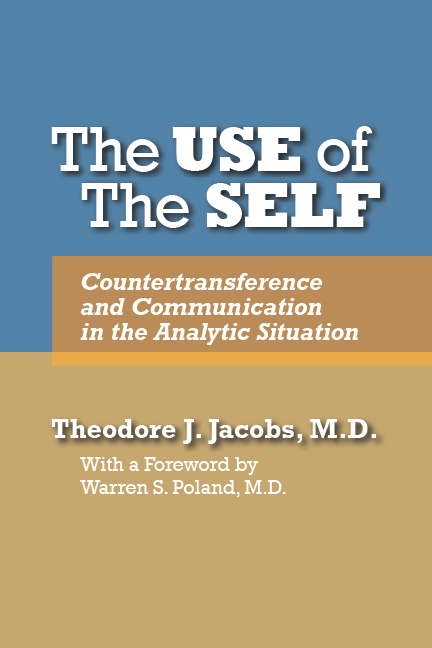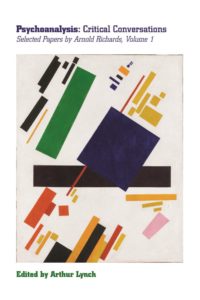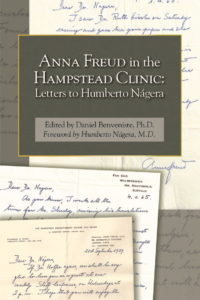The Use of Self: Countertransference and Communication in the Analytic Situation by Theodore Jacobs
$35.00
ISBN 978-1-949093-22-3
From the Introduction to the New Edition of The Use of the Self: Countertransference and Communication in the Analytic Situation
It is a quarter century since The Use of the Self was first published. In that time, its subject matter, countertransference and the analyst’s subjectivity, has undergone enormous changes. One might say, in fact, that this aspect of analytic work, in the shadows for so long, has taken center stage as a key, if not the key, element in the analytic process.
In the seventies and eighties, when I began to write the papers that were brought together in this book, open discussions of countertransference were rare. Although acknowledged as an influence on the analytic process, countertransference was regarded as a problem of the analyst’s that required further personal analysis or, at the very least, a good deal of self-reflection in order to overcome it.
This attitude, which echoed Freud’s views, was most prominently articulated in this country by Annie Reich, who wrote a trio of influential papers in response to developments in England.
In 1950, Paula Heimann, strongly influenced by Melanie Klein’s work, challenged the idea that countertransference represented a difficulty of the analyst’s that caused an interference with, or a disruption of, the analytic work.
Quite the contrary, Heimann maintained, Countertransference, she said, is not only useful in analysis, but should be viewed as an invaluable research tool for the analyst. This is because the thoughts and feelings that arise in the analyst’s mind have been placed there, as it were, by the patient. For her, in other words, countertransference represented the unconscious thoughts of the patient that have been communicated to, and experienced by, the analyst.
At this time, intense controversy between the Freudians led by Anna Freud and the followers of Melanie Klein was splitting the British Society into rival, and increasingly antagonistic, camps. Heimann’s Kleinian views on countertransference constituted a major challenge to the Freudians who thoroughly rejected them.
In America, most of the influential émigré analysts from Europe were trained in the Freudian tradition. Many of them were personally close to Freud, had been in treatment with him, or had been analyzed by one of his disciples in Vienna, Berlin, or Budapest. As a consequence, the Americans lined up solidly behind the British Freudian group and took exception to Heimann’s views. Her approach, they believed, constituted an inappropriate and inaccurate elevation of countertransference to an undeserved place of importance in analytic work; one that put it on a par with dreams and free association as an essential road to the unconscious.
In stock




